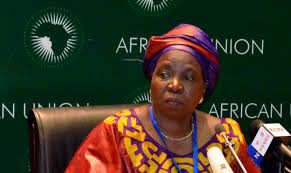02
Jun
African CSO Statement to AU Leadership: “Exclusion of African citizens and their organisations from the AUC Summit in South Africa contradicts AU’s normative frameworks.”
We are anxious at reports that the upcoming June 2015 AU Summit, to be held in the Republic of South Africa, will be closed off to African citizens, through an extra ordinary decision by ministers, endorsed and finalized by African heads of state and government.If this happens, it will indeed be a sad day for Africa, where our leadership, supported by the African Union Commission (AUC) will be voting to make the AU a club of heads of state and governments that excludes African citizens and their organisations.
Inquiries from the organs and officers of the AUC have revealed that the refusal to accredit African CSOs is aimed at ‘insulating’ African Heads of State and Government from ‘distractions’. This reason
reflects poorly on the motivations and democratic credentials of our leaders by pre-supposing that they are unable to execute their summit roles while interacting and engaging with their citizens and their representatives. Engaging with the African people and their formations (CSOs), is a positive thing, and should not be considered a distraction.
The Pan African normative frameworks have decreed the need to put the African citizens at the centre of the journey towards the full integration of the African continent. The AU vision is unequivocal in the centrality of the African citizens, it decrees that the African Union is a union of the African people; the Agenda 2063 follows suits and recognizes the central role that African citizens ought to play in order to actualize the Agenda.
Yet, the African civil society is faced with a consistent adverse onslaught to its operational space, both at the national level, but more alarmingly, at the continental level. There has been a disturbing practice that focuses on shutting out African CSOs from engaging with the African Union, especially at the June Head of State summits. The African Union Commission and its organs have been reluctant, and indeed have refused to issue accreditation to African CSOs as observers. We deem such a practice to be wrong.
The African Union is a union based on laws and democratic principles. There cannot be an African Union without the involvement of citizens and their organisations, at least not the AU that is foreseen by its vision. Pan African spaces more often than not appear distant and irrelevant to the lives of the ordinary citizens, at this point in time what is required is more interaction between the African citizens and their Pan African Institutions, not less. The reduction of spaces and opportunities of interactions will indeed increase the perceived distance of Pan African institutions to the lives of African citizens.
The African presidents’ bi-annual summits are financed by public funds. Large government delegations at these summits cost the African people millions of dollars, which mean that these spaces and institutions belong to all Africans, not just the leaders; African citizens and CSOs, therefore have a legitimate right to engage in these spaces and with these institutions. It is not for Pan African organs to ‘insulate’ African leaders from their citizens and institutions.
It is perplexing that this adverse practice has taken root during the tenure of Dr Nkosazana Dlamini-Zuma who has committed herself to supporting a people centred AU. These actions go further to contradict one of the fundamental principles of the AU Constitutive Act, which states that the formation of the AU is “GUIDED by [our] common vision of a united and strong Africa and by the need to build a partnership between governments and all segments of civil society, in particular women, youth and the private sector, in order to strengthen solidarity and cohesion among our peoples;”
The June summit will take place in the Republic of South Africa, and exclusion of the African CSOs through denial of Accreditation will be a dent to the democratic credentials of the Republic and people of South Africa. The refusal of CSO participation in the AU Summit being held in South Africa may also reinforce the perception that the national immigration policy of tightening visa applications and barring entry of Africans into South Africa is actively being rolled out. This will no doubt further complicate and contradict the much touted slogans of a ‘One Africa One People; and ‘Our Shared Values’.
We African CSOs, therefore, protest our exclusion. We are disappointed at attempts to lock us out of processes of our institutions that were meant to be driven by us. We call upon the leadership of the AUC, and African Heads of State including the government of the Republic of South Africa to desist from any attempt to exclude African CSOs from participating in the June 2015 summit. Indeed we call upon the leadership of the AU, the AUC and the government of South Africa to take steps towards strengthening democratic practices on the continent, starting with securing the centrality of the participation of citizens and their formations, by doing the right thing and taking steps towards reversing any trends that seek to reduce the democratic and operational spaces of African citizens and their CSOs.
Signed on 1st June 2015 by:
Arab Institute of Human Rights (AIHR) www.aihr-iadh.org
AU We Want Coalition
Centre for Citizenship Participation in the African Union (CCPAU) ccpau.org
Centre for Learning and Capacity Building for Civil Society (CESC) of Mozambique www.cescmoz.org
CIVICUS World Alliance for Citizen Participation www.civicus.org
Civil Society Legislative Advocacy Center (CISLAC) of Nigeria www.cislacnigeria.net
Electoral Institute for Sustainable Democracy in Africa (EISA) of South Africa www.content.eisa.org.za
OSF- Africa Regional Office www.afrimap.org
Pan African Lawyers Union (PALU) www.lawyersofafrica.org
State of the Union (SOTU) Coalition www.sotu-africa.org
FAHAMU Network for Justice www.fahamu.org
